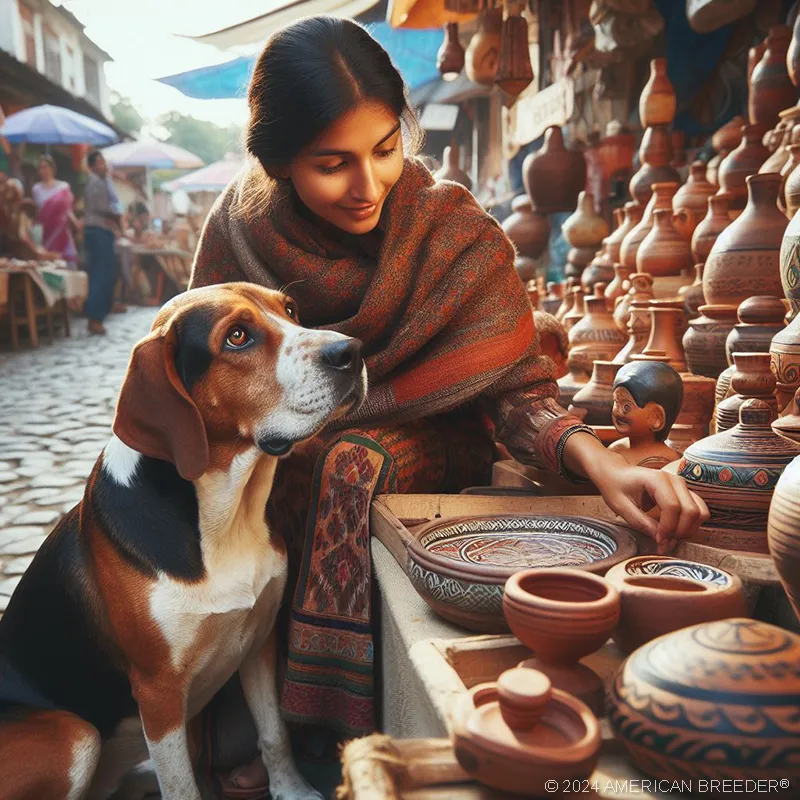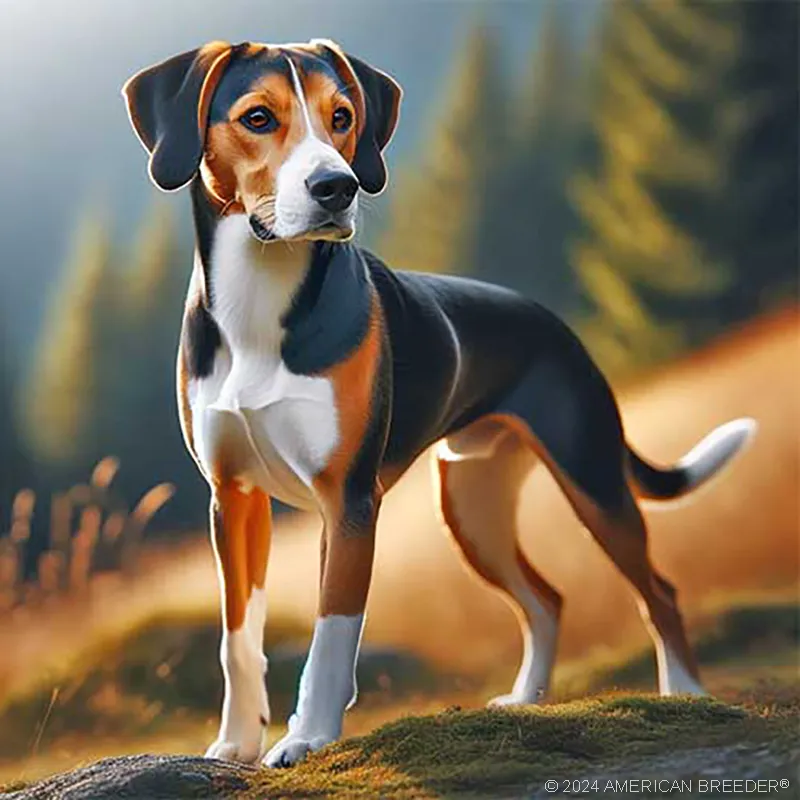Hamiltonstovare Dog: The Distinctive Canine Companion
In the world of dogs, there exists a breed that embodies a harmonious blend of history, temperament, and distinctive traits – the Hamiltonstovare Dog. This captivating breed, also affectionately known as the "Hamilton," holds a unique place among canine companions, boasting a rich heritage intertwined with versatility, intelligence, and a friendly disposition. As we embark on a journey to explore the remarkable facets of the Hamiltonstovare Dog, we'll delve deep into its origins, delve into its temperament and behavior, unravel its training needs, and uncover the secrets behind its health and care. So, sit back, relax, and let's embark on an odyssey into the world of the Hamiltonstovare.
Breed Background: Origins and Purpose
At the heart of every breed lies a captivating origin story, and the Hamiltonstovare is no exception. Hailing from the scenic landscapes of Sweden, this breed was meticulously crafted in the early 20th century by none other than Count Adolf Hamilton. Driven by an unwavering passion for hunting, Count Hamilton sought to amalgamate the tracking prowess of the Hannoverian Hound, the agility of the Harrier, and the endurance of the English Foxhound. This thoughtful fusion gave birth to a breed that exhibited not only remarkable hunting skills but also an endearing charm that would make it an ideal family companion.
Appearance: Aesthetic Elegance and Distinctive Traits
One glance at a Hamiltonstovare and you're bound to be captivated by its aesthetic elegance. This medium-sized breed boasts a well-balanced build, with strong legs and a deep chest that speaks volumes about its agility and stamina. The short, dense coat that adorns this breed comes in a tricolor pattern that harmoniously blends black, tan, and white hues. The distinctive features of the Hamiltonstovare include its expressive eyes that reflect its intelligence and curiosity, as well as its ears that are set high and hang close to its head, adding a touch of nobility to its appearance.
 Temperament: The Heart of a Gentle Hunter
Temperament: The Heart of a Gentle Hunter
What truly sets the Hamiltonstovare apart is its temperament – a charming fusion of its hunting lineage and its innate friendly nature. Despite its history as a proficient hunter, the Hamilton is remarkably gentle and sociable. This breed often forms strong bonds with its family, showcasing unwavering loyalty and affection. Its friendly disposition extends to children and other pets, especially when early socialization is provided. While the drive to chase and hunt remains an inherent trait, this breed's temperament ensures it coexists harmoniously within a family setting.
Training and Intelligence: A Willing Student
Training the Hamiltonstovare is a journey that highlights its intelligence and willingness to learn. With a moderate level of trainability, this breed thrives under positive reinforcement methods that include treats, praise, and consistent guidance. Their high intelligence level allows them to grasp commands swiftly, making them an excellent choice for various canine sports and activities. Engaging their minds with puzzles and training sessions is not only beneficial for obedience but also helps channel their energy constructively.
Stay tuned for the next section where we'll delve into the Health and Care aspects of the Hamiltonstovare Dog. From common health concerns to grooming needs, we'll leave no stone unturned in our quest to understand the best ways to ensure the well-being of this remarkable breed.
Hamiltonstovare Dog Quick Reference Guide
 Breed Background: Origin: Sweden | Breed Purpose: Hunting | AKC Class: Hound Group | Year Recognized by AKC: 2011
Breed Background: Origin: Sweden | Breed Purpose: Hunting | AKC Class: Hound Group | Year Recognized by AKC: 2011
Appearance: Size: Medium | Weight: 40-60 lbs | Coat Type: Short | Colors & Patterns: Tricolor (black, tan, white) | Distinctive Features: Expressive eyes, hanging ears
Temperament: Energy Level: 4/5 | Loyalty: 5/5 | Friendliness to Pets: 3/5 | Friendliness to Strangers: 3/5 | Trainability: 3/5 | Playfulness: 4/5 | Frequent Barker: 2/5 | Chase Instincts: 5/5 | Sense of Smell: 5/5 | Drive to Hunt: 5/5
Health & Care: Health Issues: Hip Dysplasia, Ear Infections | Lifespan: 10-12 years | Grooming Difficulty: Low | Exercise Needs: High
Socialization: Interaction with Children: Good | Interaction with Pets: Moderate | Interaction with Strangers: Moderate | Elderly Compatibility: Moderate | Ease of Training: Moderate
Suitable Living Arrangements: Apartment: No | House: Yes | Rural Area: Yes | Yard Size Requirements: Medium to Large Yard
Training & Obedience: Trainability: 3/5 (Moderate) | Intelligence: 4/5 (High) | Obedience: 3/5 (Moderate) | Problem-Solving: 4/5 (Advanced) | Easily Stimulated: 5/5 (High) | Focus Level: 3/5 (Moderate) | Easily Distracted: 4/5 (High)
Financial Planning: Typical Price Range: $800 - $1500 | Initial Expenses: Puppy essentials, crate | Ongoing Annual Expenses: Food, vet visits
Breeding: Reproductive Maturity: 8-12 months | Litter Frequency: 1-2 per year | Litter Size: 4-8 puppies | Stud Cost: Varies | Breeding Challenges: Maintaining genetic diversity
Did You Enjoy this Article? Share it and Help Us Spread the Word!
If you found this article helpful, we'd appreciate it if you could share it with your friends or link to it from your website, blog, or group! You can also use the convenient social share tabs on the left side of the screen to instantly share this page to your social media feed. For more ways to support and promote the American Breeder Community, visit our Share & Promote Together page for social media posts and memes you can copy and share. Your support means the world to us!
Disclaimer: The information provided in this article is for general informational purposes only and does not constitute legal, medical, financial, or professional advice. While we strive for accuracy, we make no representations or warranties regarding the completeness, accuracy, reliability, or suitability of the information. Please consult with a professional before making decisions based on the content provided. American Breeder Inc. assumes no responsibility for any errors or omissions or for the results obtained from the use of this information.

